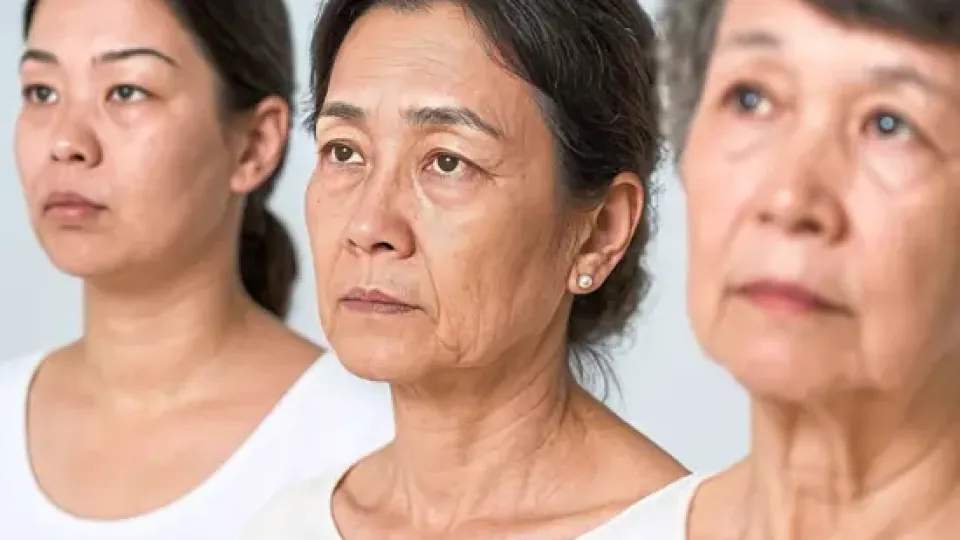September 18, 2025
KUALA LUMPUR – Malaysian women today are living well into their 70s, spending up to 30 to 40 years – nearly half their lives – in the postmenopausal stage.
Yet, menopause has long remained neglected in public health discussions, clinical consultations and workplace policies.
A new, large-scale homegrown study now provides much-needed data and presents a compelling case to shift this narrative.
Recent statistics reveal a concerning trend: Female labour force participation in Malaysia drops from 69% in the 40-44 age group to just 34% among women aged 55-59; precisely during the menopausal transition.
While this decline is likely multifactorial, involving caregiving responsibilities and household duties, unmanaged menopausal symptoms may be a significant contributor.
Although the economic cost to Malaysia remains unquantified, the United States reports annual productivity loss of US$1.8bil (RM7.6bil) due to untreated menopausal symptoms.
This suggests a potentially substantial impact locally as well.
In June (2025), the Climacteric medical journal published the first comprehensive study on “Meno-pausal Symptoms Among Multi-Ethnic Working Women in Malaysia”.
This population-based, online survey captured the experiences of 1,825 women aged 40-60 years across all major ethnic groups.
Using an expanded 20-item symptom checklist adapted from the Menopause Rating Scale, the study stratified findings by age, ethnicity and income.
Symptoms were analysed across four age groups (40-44, 45-49, 50-54 and 55-60 years) and among Malay, Chinese, Indian and mixed-ethnicity women, with income levels divided by a RM75,000 threshold.
The most commonly-reported symptoms across all groups were generalised joint pain (34.6%), sleep disturbances (31.1%), brain fog (26.2%), mood swings (25.8%) and digestive issues (25.5%).
Indian women were nearly three times more likely to report four or more symptoms, compared to Chinese women.
Malay women showed a moderate increase, with fatigue being the most frequent complaint.
Interestingly, vasomotor symptoms such as hot flushes (17.8%) and night sweats (20.9%) were less prevalent than in Western populations.
This highlights the importance of culturally-tailored approaches to diagnosis and management.
Menopause, as this study shows, is a dynamic and evolving experience.
Women aged 45-49 more often reported mood swings, fatigue and digestive complaints.
In contrast, those aged 50-54 experienced more hot flushes, night sweats and brain fog.
Meanwhile, symptoms such as joint pain, vaginal dryness, dyspareunia (painful sex) and urinary tract infections were predominantly reported by women aged 55-60.
Higher-income women were 1.64 times more likely to be more affected by their symptoms, possibly due to increased work-related stress or heightened symptom awareness.
In contrast, women in the lower-income groups often described a generalised sense of “feeling unwell”.
This study has significant implications for both healthcare providers and workplaces in Malaysia.
It underscores the need to train providers to look beyond vasomotor symptoms and to recognise joint pain, cognitive decline, genitourinary issues and sleep disturbances as integral to the menopausal experience.
It also opens the door for more inclusive and flexible workplace policies, including menopause- aware human resource (HR) practices and dedicated well- being programmes for midlife women.
It is hoped that this landmark study will prompt investment into longitudinal research to include underrepresented groups, and to investigate cultural, biological and psychosocial drivers of ethnic disparities.
It also highlights the need to assess the economic and productivity costs of menopause in Malaysia.
Menopause is not a silent or inevitable decline; it is a pivotal life stage that shapes the health, productivity and quality of life of millions of Malaysians.
This study offers the clearest evidence yet of how menopause is experienced locally, and why urgent action is needed.
It is time to move from data to dialogue, and from awareness to action.
With the right strategies, we can ensure that Malaysian women not only live longer, but live better, stronger and healthier lives after menopause.
Dr Premitha Damodaran is a consultant obstetrician and gynaecologist, and sits on the International Menopause Society’s Board of Trustees. For more information, email starhealth@thestar.com.my. The information provided is for educational and communication purposes only, and should not be considered as medical advice. The Star does not give any warranty on accuracy, completeness, functionality, usefulness or other assurances as to the content appearing in this article. The Star disclaims all responsibility for any losses, damage to property or personal injury suffered directly or indirectly from reliance on such information.

